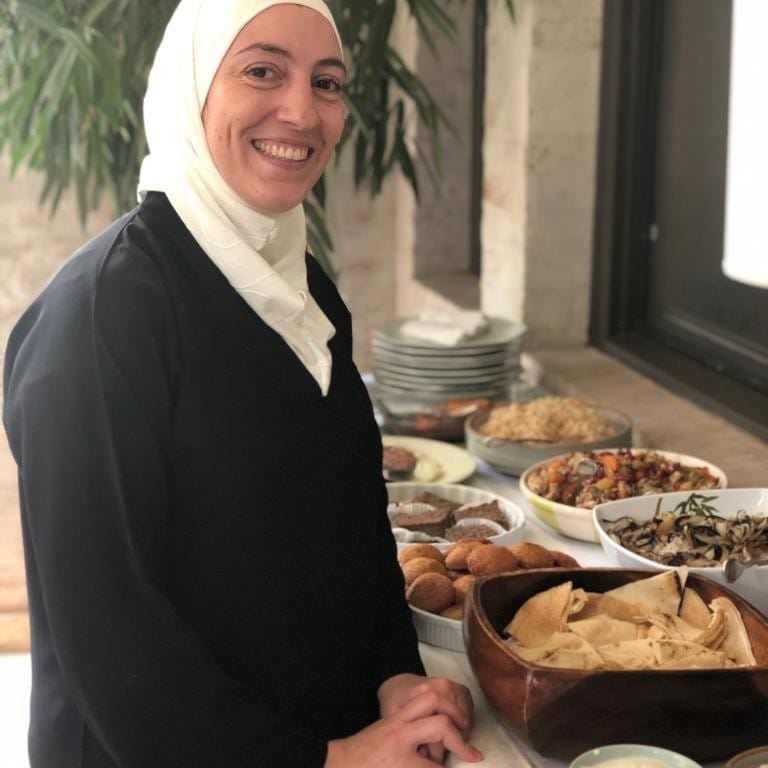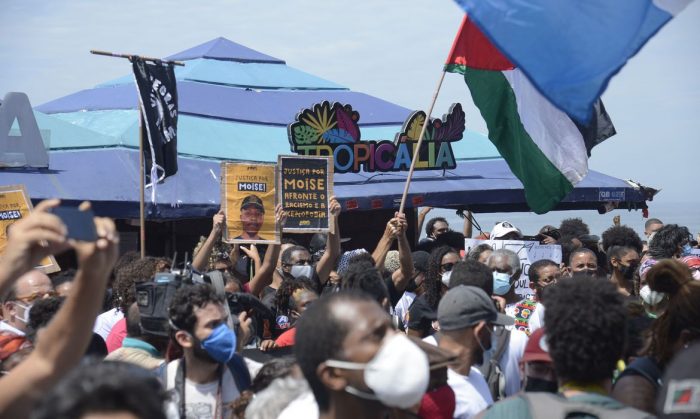In English
12 de setembro de 2019
A Different View of Brazil – Level 3
Have you ever pictured yourself leaving your country without a place to go and only knowing your mother tongue? This is the story of Ghazal Baranbo.



By João F. and Kauan S., 13 years old
Have you ever pictured yourself leaving your country without a place to go and only knowing your mother tongue? This is the story of Ghazal Baranbo, who escaped the Syrian war with her husband and two children. They arrived in Brazil with a few suitcases and did not know what to do.
In an interview with junior reporters Kauan S. and João F., both 13-year-old students at Professor Orlando Geribola Public State School in Osasco, São Paulo, Ghazal talks about her life during the war and about her arrival in a country with very different customs.
What was your country like before the war?
Before the war, my town, Damascus, was beautiful, calm, and safe. Because of the conflicts, the city became very expensive, many people died, and many fled to other countries. My life in Syria was very nice: I had a home, a car. My husband, who is a mechanical engineer, had an office, and I was a homemaker. After we arrived in Brazil, I started to work as a cook.
What did you do in Syria and who did you live with? Do you still have relatives in Syria?
Before I got married, I lived with my mother, my father, my three sisters, and three brothers. We all lived in the same house. After I got married, I started living with my husband. My father, mother, brothers and sisters are still in Syria.
Why did you decide to come to Brazil?
My husband had gone to Lebanon. When he was coming back to Syria, some people at the border confused him for someone else who had the same name, so he was arrested by mistake. I did not know what happened to him for three months. When he got out of jail, he said: “I can’t stay in Syria anymore, I need to travel.” I packed up my things in Syria and we drove to Lebanon. We stayed there for 10 months. During this time, we looked for countries to move to, like Germany and Sweden. But none of them allowed us to move there, because we had no visas (permission for a foreigner to go into a country). Only Brazil allowed us to move here without documents or a passport. But I have a cousin who went to Germany. Her husband travelled there by boat (many Syrians cross the Mediterranean Sea by boat to Europe to flee the war) and after three years, she went over there too.
What did you know about Brazil when you came here? What was your reaction when you arrived?
All I knew was that there was football, the Amazon, Rio de Janeiro, and coffee. I also did not speak a word of Portuguese. It was hard for me. I thought it was strange and difficult. I spent five months here without liking it. But when I started to learn Portuguese and talk to Brazilians, I started to really like them. Brazilians help me a lot.
What do you do in Brazil today?
I cook Middle Eastern food. We had a restaurant two years ago, and I worked as the head chef. Now I cook at home and take orders.
Why do Muslim women wear a veil?
My religion, Islam, says I need to wear a veil. Women start to wear it around 13 years old, which is when they start the reproductive cycle. When I am at home with my husband, my father, my brothers, or my father-in-law, I do not need to use the veil. But when another man that is not one of those comes to my home, I have to use it. I also need to wear it when I am out on the streets, so nobody can see my hair and my body.
Do you want to go back to Syria?
Yes, I do but not now. My children go to school here now. I want to go back to Syria when my children finish college (in addition to Yara, 14 and Riad, 17,Ghazal had one more daughter, four-year-old Sara, after she arrived in Brazil).
Did anyone in your family die during the war?
Not from my family, but some of my friends did. I am from Damascus. There is no war there, but they drop bombs on the city once in a while. After the bombing is over, everyone goes back to their lives. People are already used to it.
Questions
1) According to the interview, what happened in Damascus during the war?
a) It was destroyed.
b) Life went on as usual.
c) It became an expensive city and many people left.
d) The interviewer was not able to answer.
Correct answer: C
2) How do you think Brazilians can help refugees?
Ixi! Você bateu no paywall!
Ainda não é assinante? Assine agora e tenha acesso ilimitado ao conteúdo do Joca.












Você precisa fazer o login para publicar um comentário.